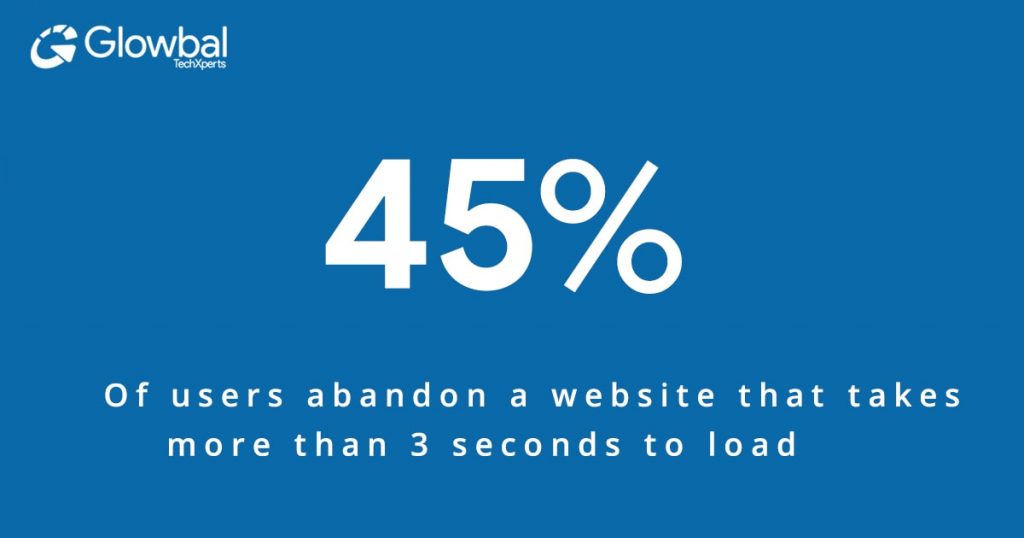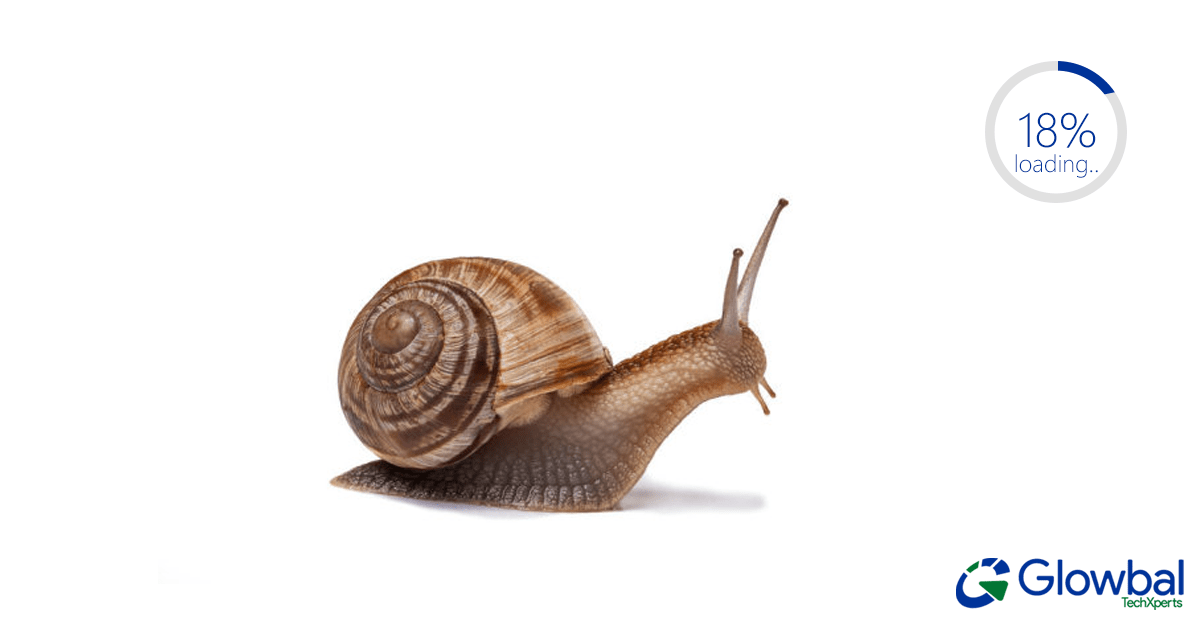Slow websites are frustrating and no one likes them. Your customers don’t care why your website is slow They click a link and expect the site to load. If it doesn’t, their expectations are crushed. Conversions then drop drastically, the bounce rate goes up, and visitors start to disappear. Not only that, but as we highlighted in this post, website speed is key to better search engine rankings.
When it comes to a slow website, the first thing you need to understand is why your website is slow. Once you know the problem, you can work on fixing it.
In our years of designing awesome websites, we’ve come across some common reasons why websites are often slow. Even better, we’ll tell you how you can resolve them.
Poor Server Performance
Poor server performance is the most common culprit of slow websites. If your server’s performance is poor, it will take longer to respond. No matter how quick everything else is, a slow server will always give you a slow start. Your web host is to blame for all of this.
The one thing that you shouldn’t overlook when creating your websites is the web host. Going with an inexpensive host often means you will end up with a shared server. This means you’re sharing space and resources with countless other websites which often slows your site down drastically.
When choosing a web host, consider a host that will provide you with adequate resources for your website.
Server Location
Data travels through various media such as cables and satellites. When a customer clicks on your website, a message is sent to your server asking it to load content. Because of the long-distance, it takes more time for the information to travel. Think of it as making a long-distance phone call.
The information has to travel to your server, requesting access, and then travel back to your user’s location, in order to load your website on their browser.
To understand if your server is in an optimal location, it’s important to know where the majority of your site visitors are located. You can transfer your website to servers located closer to them. Doing so will increase your website’s speed.

Lots of Traffic
If you’re experiencing a lot of traffic, it will eventually cause your website to slow down. This shouldn’t come as a surprise. Even in your physical shop or office, the busier it gets, the slower people get served. That is unless you increase the number of staff serving them. This cycle continues until the majority of customers leave and the shop returns to its normal amount of traffic.
The same happens to your website when it experiences high amounts of traffic. Your server tries its best to manage all the requests, but somewhere it will slow down, eventually slowing down the whole site as it tries to compensate.
As your website begins to attract more traffic, it is necessary to update your hosting, optimize content delivery, and streamline your site design.
Unoptimized Images
Quality images on your website are great. We are visual creatures and will often stay on a page longer and make purchases if the images are enticing. However, adding images to your website without optimizing them can lead to slower site speed.
If you are uploading large images you are contributing to the problem. Full-size HD images require a larger amount of bandwidth to load hence slower site speeds. File formats are also important here. Browsers can load JPG, PNG, and GIF images nice and quick. Heavy formats like TIFF and BMP however increase your load time.
There are simple fixes to this. Resize your images to appropriate dimensions, choose a good format, and compress your images using this Image Compression tool. The good news is no one will notice the difference in the images, but they will notice how fast your site loads.
Outdated CMS
If you are using a popular Content Management System such as WordPress, Wix, or Drupal it is important that you keep your CMS and extensions up-to-date. These platforms are constantly improving their software to ensure your website performs at full capacity. An added benefit of keeping your software updated is that known vulnerabilities are fixed thus making it more difficult for hackers to hack your website.
If you see a popup asking you to perform an update, do it. Having the latest versions of any software and plugins will improve your website’s load times.
Do You Feel The Need For Speed?
Ready to make the necessary changes to increase your website’s speed but aren’t sure where to start? Look no further than Glowbal Digital. We want to see your business accelerate – drop us a line and find out what we can do for you!
